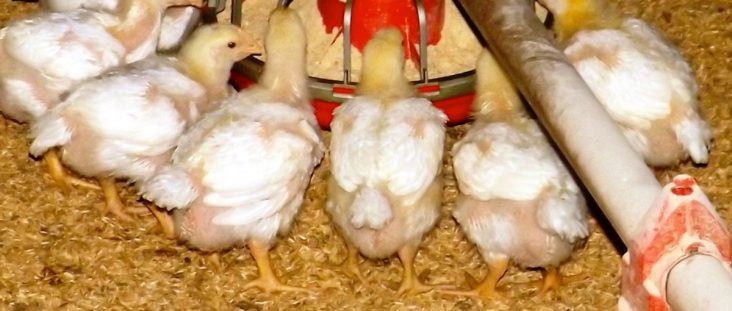Price collusion suits mount against Tyson Foods and other poultry companies
by January 31, 2018 8:12 pm 1,263 views

Allegations against the U.S. broiler industry of price collusion continue to brew with two new lawsuits filed against Tyson Foods and 16 of chicken competitors along with Agri Stats, an analytical data firm for the chicken and other commodities.
Other Arkansas chicken processors named as defendants in the suits include Springdale-based George’s and Fort Smith-based O.K. Foods.
The nation’s two largest food distributors Sysco Corp., and U.S. Foods each filed suit in federal court on Tuesday (Jan. 30) claiming the industry conspired with the help of Agri Stats to artificially inflate chicken prices by reducing supply all the way back to breeder stock.
The suit states one party has already agreed to settle with plaintiffs for its role in the conspiracy. Defendant Fieldale Farms agreed to pay $2.25 million to settle claims by a putative class of direct purchasers alleging that it participated in this conspiracy.
Tyson Foods maintains the claims against the company are unfounded.
“We will vigorously defend our company,” said Tyson spokesman Gary Mickelson.
Simmons Foods has told Talk Business & Politics the company “firmly denies any accusation of participation in a conspiracy to manipulate markets. The company invites the opportunity to defend itself and resolve these claims through the legal process.” Sanderson Farms and Pilgrim’s also dispute the claims against the industry, saying the suit is without merit.
The two suits – 131 pages each – were virtually identical, claiming the chicken companies colluded to reduce the number of breeder flocks which are the source for future broilers.
It’s not unusual for poultry companies to cut back on production at times relative to demand and commodity costs that have a direct correlation on margins. But plaintiffs claim historically these companies have temporarily reduced supply at the middle or end of the supply chain by breaking egg placements, idling plants or even killing newly hatched chicks. The actions allowed companies to ramp up production within a few weeks if chicken prices rose.
Sysco and U.S. Foods claim “the poultry industry changed its behavior in 2008 by not only eliminating the historical boom and bust cycle, by also propping up chicken prices during a period of rapidly falling input costs by coordinating supply restrictions and manipulating one or more broiler price indices.”
The suits claim the change in behavior began in 2008 when Tyson Foods rejoined Agri Stats after an 8-year hiatus. The suits also claim the “buy versus grow” policy instituted by Tyson Foods was one of the devices to keep supplies low. Tyson Foods executives have said they began buying chicken parts used for further processing to fill some customer orders because they could do that cheaper than growing a chicken with little demand for dark meat.
Plaintiffs claim the defendants were able to keep chicken prices inflated due to lower supplies which directly impacted the Georgia Dock pricing, an industry benchmark for setting wholesale prices in the market. The Georgia Dock benchmark price was a self-reported number from a group of at least 10 chicken companies, all of which are defendants in the suit. The Georgia Dock pricing system was abandoned in 2016 after regulators saw a lack of transparency amid allegations of manipulation.
Each Georgia Dock member was asked to sign an affidavit with their price submission, but the companies balked. In late 2016 a new pricing index was introduced by the Georgia Department of Agriculture. That index was abandoned in February 2017 because too few companies were participating.
Florida’s Attorney General is investigating the chicken industry for anti-competitive practices including manipulation of the Georgia Dock. Aside from the antitrust suit, there have been around a dozen civil lawsuits filed in the past 18 months against the chicken industry.
Antitrust expert Peter Carstensen has told Talk Business & Politics the liability in the case requires the plaintiffs show the industry players conspired and so far all the discovery has been public information. He said the case will likely hinge on private information such as emails, phone records and memos if there are found.
“If the plaintiffs can prove conspiracy or collusion, there is no defense,” he said.
Analysts have largely not been concerned about claims raised in the past year or so. But investors took the last lawsuits seriously with shares of Tyson Foods, Pilgrim’s Pride and Sanderson Farms all moving lower on the day. Shares of Tyson Foods (NYSE: TSN) closed Wednesday at $76.11, down $2.78 or 3.52% with volumes three times heavier than normal. For the past 52 weeks, Tyson shares have traded from a high of $84.65 to a low of $57.20.
Pilgrim’s (NASDAQ: PPS) shares closed Wednesday at $27.77, down 6.25% on the day and just off the company’s 52-week low. Pilgrim’s 52-week high price is $38.39 with the low of $22.67. Shares of Sanderson Farms (NASDAQ: SAFM) closed at $126.90, down 4.14%, also just above the 52-week low of $126.85. Sanderson’s 52-week high is $132.30.
